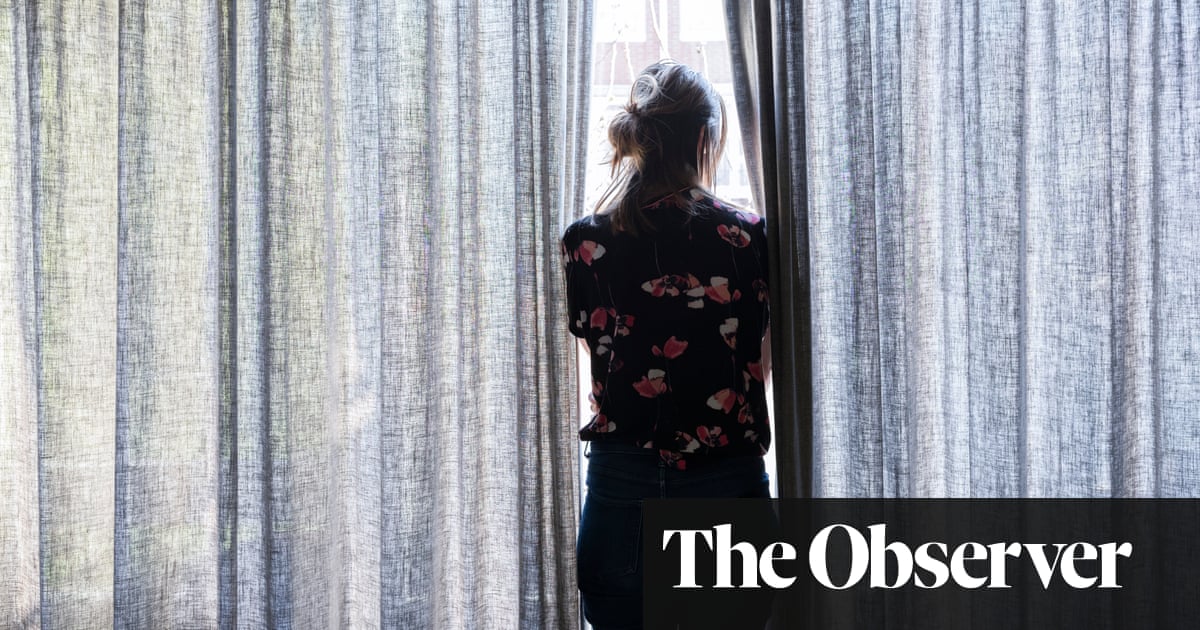
Food aid charities have identified the emergence of the UK’s “newly hungry”, a growing cohort of people previously in good jobs and enjoying comfortable incomes who have been forced to use food banks and claim welfare benefits for the first time during the pandemic.
The Feeding Britain network said its members were providing food support to a new influx of middle-income families. Typically with mortgages, cars and often self-employed or business owners, they had been plunged into crisis by Covid-related job losses and gaps in the social security system.
“We now see families at food banks who before the pandemic were able to pay their bills and still be comfortable enough to put food on the table. For the first time in many years that is no longer the case,” said the charity’s national director, Andrew Forsey.
Research before Covid-19 showed the vast majority of people who used food banks were destitute and penniless. The widening user demographic of recent months, however, is seen as an indicator of how the pandemic has pushed the cost-of-living crisis further up the income scale.
Feeding Britain called on ministers to commit to keeping the £20-a-week Covid top-up for universal credit and tax credits, and to extend it to more than a million people on legacy benefits who were excluded from last April’s one-year uplift. It urged MPs to hold a debate and vote on the issue in the next few weeks.
Ed Hodson of Coventry Citizens Advice described the newly hungry as a “multi-faceted cohort, not previously concerned with putting food on the table”. They were typically younger people “who were fully employed on a middle income and who are either property owners, mortgage payers or who rent privately”.
Black Country food bank in Dudley said the new cohort of people who had come to it for help during the pandemic had typically never used food banks before. “They are used to a certain lifestyle – more outgoings, credit cards, car finance etc, and have always worked.”
The phenomenon of the newly hungry is revealed as Feeding Britain’s network of charities reported “staggering” increases in the volume of food aid they had given out between March and September, a trend they anticipate will continue as a new lockdown begins. They include:
Bonny Downs community association in East Ham, London, which reported lengthy queues forming outside its food bank an hour before opening time. It gave out food parcels to 4,000 people between April and June, compared with 622 in the first three months of the year.
The Beaumont Leys food bank in Leicester, which went from providing food to 40 families before the pandemic to 500 a week since March.
The NewStarts food bank in Bromsgrove, Worcestershire, said demand had risen by 700% over the same period.
Dartmoor Community Kitchen Hub in Devon, which said only 20 of the 130 people it had helped since March had previously needed charity food aid, “mostly people going without food to pay rent, bills and debts”.
Black Country food bank said it had spoken to many people who were embarrassed to use a food bank. “Phrases like ‘it’s the last resort’, ‘I didn’t know what else to do’, ‘I haven’t eaten in the last few days’, ‘My kids are hungry and I don’t know what to do’ have been common phrases that we are hearing every day.”
Black Country’s Jen Coleman said: “The £20 increase [in universal credit] has not meant that those in poverty have suddenly become better off, it has meant that they have been able to survive. Pulling this increase now would plunge people in poverty back into a much bleaker place.”
Many food bank users were already vulnerable before Covid, with low incomes and health and disability conditions, Feeding Britain found. They have been hit by the soaring costs of food and energy, increasing social isolation and problems with the benefit system. Migrants ineligible for welfare benefits were also badly hit.
But the striking emergence of the newly hungry in recent months also points to the presence of gaps in the safety net for self-employed people who have not qualified for government welfare support, and those who found subsistence-level universal credit payments were not enough to meet essential living expenses.
Sabine Goodwin, the coordinator of the Independent Food Aid Network, many of whose 400 members are part of Feeding Britain, said: “No one should need to depend on emergency food parcels to survive and the ever-increasing reliance on food aid charities to pick up the pieces while social security continues to fail must be challenged.”
Feeding Britain is an anti-hunger charity co-founded with cross-party support by the former MP Frank Field in 2016. Its president is the archbishop of Canterbury, Justin Welby. It has helped pioneer holiday hunger schemes and other food poverty initiatives such as social supermarkets.
A government spokesperson said: “We are wholly committed to supporting people at this time. We’ve put in place a comprehensive plan to protect people’s incomes and support and create jobs in every region and nation of the UK, with more than £200bn of support since March.
“Alongside raising the living wage and ending the benefit freeze, we have launched our £30bn plan for jobs, to protect, support and create jobs as we build back better. In addition we have provided £9.3bn extra welfare support to help those most in need, as well as introducing income protection schemes, mortgage holidays and additional support for renters, and we constantly keep these measures under review.”












